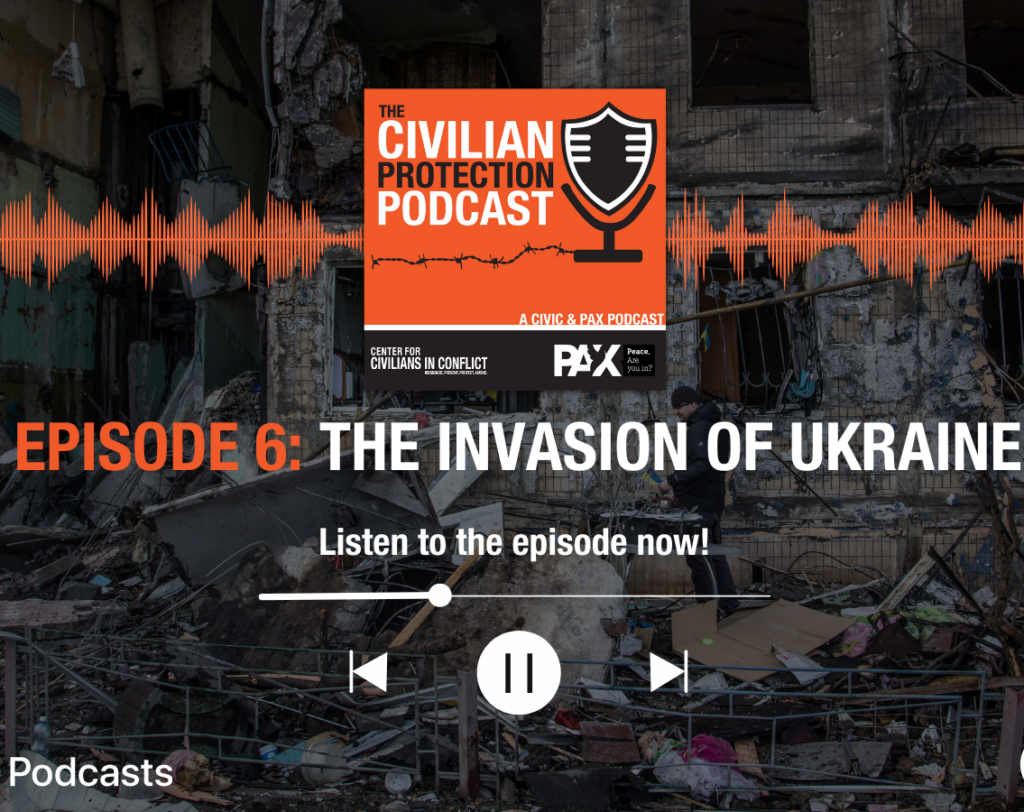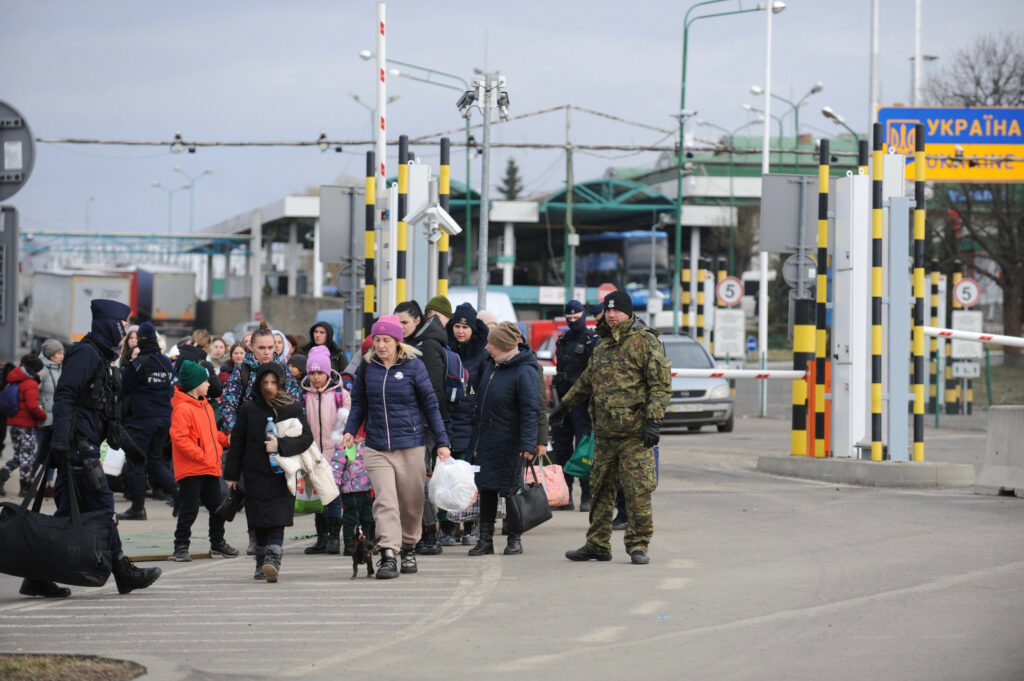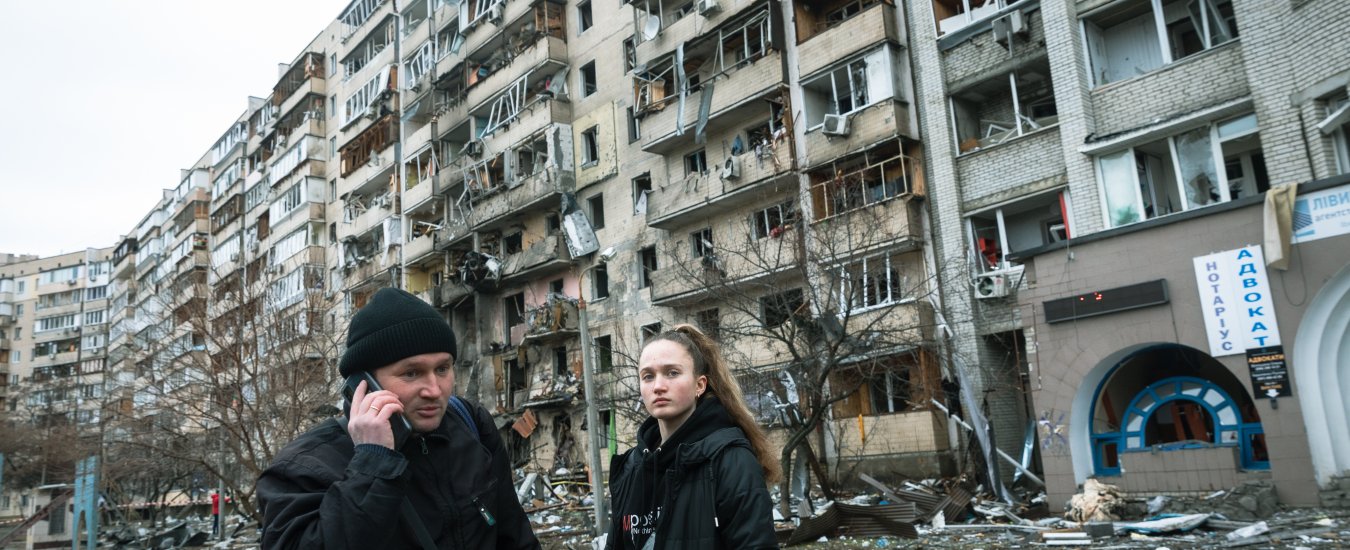Stay informed about the latest developments in Ukraine and read the stories of our courageous partners.
Russia’s war in Ukraine
Russia and Ukraine have been in conflict ever since the annexation of Crimea in 2014. Late in February 2022, the conflict erupted again when Russia invaded Ukraine for no reason and under false pretences. Since then, big cities such as Kharkiv, Odessa and Kyiv have been under missile fire every day, causing thousands of deaths. The number of casualties is rising rapidly, with large-scale ground attacks on Kyiv and Kharkiv now expected. The destructive power of the arms used in this conflict is colossal. Should Russia use them without much restraint, tens of thousands of people will die, and Ukraine will be largely destroyed.
Nuclear arms
Putin has also threatened to use nuclear weapons, which would be catastrophic for the Ukrainian people: huge numbers of casualties, a destroyed infrastructure, radiation hazards, making relief efforts impossible, and a serious impact on the environment and land use. The Russian President’s actions are therefore endangering people everywhere.
Putin’s willingness to use the nuclear option shows once again how irresponsible it is for states to possess weapons of mass destruction. We cannot be sure that heads of government will never use them. All nuclear powers must work towards disarmament.
Disinformation
In this war, the truth does not lie in the middle. Russia is the aggressor and Ukraine is defending its independence. President Putin’s intention is clearly to bring Ukraine within his sphere of influence. He has been actively spreading disinformation about the situation in Ukraine for many years, claiming that Ukraine belongs to the Russian Empire. But as the Ukrainian President Zelensky pointed out in a recent speech to the Russian people: ‘Ukraine in your news reports and Ukraine in reality are two different countries. And the biggest difference is that our Ukraine really exists.”
Everyone loses
In this war, everyone loses. The Russian attack on Ukraine has placed an immense burden on its citizens. Their lives and futures are at stake. More than a million Ukrainians have fled, and the EU warns that this could mushroom to several million. Meanwhile, the Russian population is being cowed into submission by an increasingly ruthless dictator. This war must stop.
PAX has been active in Ukraine since 2014. It works together with its partners and supports Dignity Space, a network of Peace Engineers, and provides them with the knowledge, skills and support to mediate and resolve conflicts in over twenty cities. They are working towards bringing about a free and democratic Ukraine.
War-time environmental damage
Since the beginning of Russia’s full-scale invasion in Ukraine on 24 February 2022, PAX has been actively engaged on the topic of war-related impact on the environment in Ukraine, documenting environmental damage and conducting research, as well as international advocacy surrounding those efforts.
In the course of 2022–2023, PAX produced a number of reports dedicated to the topic of environmental and health risks stemming from the ongoing war, including the publication on the initial assessment of the toxic toll of Russia’s invasion (March 2022), and four reports on risks and impacts from military attacks at Ukraine’s energy infrastructure (December 2022), at agro-industrial sites (April 2023), at oil and gas infrastructure (June 2023), and at the dam of Kakhovka hydro power plant in July 2023.
The objective of PAX’s work on the environmental situation in Ukraine is to contribute to the prevention of the degradation of the environment, as well as to ensure accountability for war-time environmental damage. On February 24, 2023, PAX initiated and developed together with other partner organizations a ten-step plan to address the environmental impact of the war in Ukraine in a joint Call for Action to the International Community to implement it. Among other activities, PAX advocates for supporting Ukraine in collecting evidence of crimes against the environment for further claiming compensations through international mechanisms, and PAX’s work on documenting environmental damage contributes to this objective.
Businesses and investors should stay away from the Russian State
The Russian invasion of Ukraine is a grave crime against international law. Investors and businesses will have to make sure that they do not contribute to the Russian State’s coffers as this supports its ability to wage an illegal war and destroy democratic values.
Battle of Values
The international business community cannot exist without the rule of law. International law is built on sovereign rights of states as laid down in the UN Charter, and on human rights law as laid down in the Universal Declaration. The violent attack of Ukraine violates the most basic premise of the international legal order, the inviolability of borders between states. Over the past years, the Russian Government has been increasingly explicit denouncing the core values underpinning international relations. Doing business with such a state is necessarily problematic.
The standards that the international business community has embraced, the UN Guiding Principles and the OECD Guidelines, are based on human rights law. By rejecting these values head-on, the Russian State disqualifies itself as an acceptable business partner. What does this mean for businesses and investors with interests in Russia?
Podcast: The invasion of Ukraine

On February 24, 2022, Russia invaded Ukraine. Since that day, thousands of civilians have been killed or injured and over ten million people have been internally displaced or fled Ukraine as refugees. In this episode, CIVIC colleagues in Ukraine share their experiences living through the war, the dangers facing civilians, and what must be done to protect them.
Listen to episode 6 via:

Read our interview with Natalia from Luhansk
Moved by Natalia’s story?
Support PAX and
our work in Ukraine with a donation
The second interview takes place with Natalia. She is originally from the city of Luhansk, in the region Luhansk. She was relocated to the West of Ukraine in 2014, due to the war. Originally Natalia is a history teacher, but she changed her profession to running a beauty salon. Since her relocation, she became a Peace Engineer. She visits other, newly arrived IDP’s (Internally Displaced Persons), who are for the majority mothers with children.
Read the interviewInterviews with our partners from Ukraine
You can read the previous interviews held with our partners in Ukraine here:
PAX Ukraine Alert
Here you can find our recommendations on steps toward sustainable peace in Ukraine.
- Ukraine Alert, August 2023 – Recovery after de-occupation
- Ukraine Alert, September 2022 – Ukraine Needs an EU Accession Process ‘Plus’
- Ukraine Alert, May 2022 – Guiding Principles for Comprehensive, Citizen-based Reconstruction in Ukraine
Blogs Ukraine
You can read the blogs by our staff members and our courageous partners from Ukraine here:
- A Requiem for those that couldn’t be buried… | Cinta Depondt, Ukraine Expert, March 28th 2022
- Just do it? | Miriam Struyk, directeur Programma’s PAX March 10th 2022




